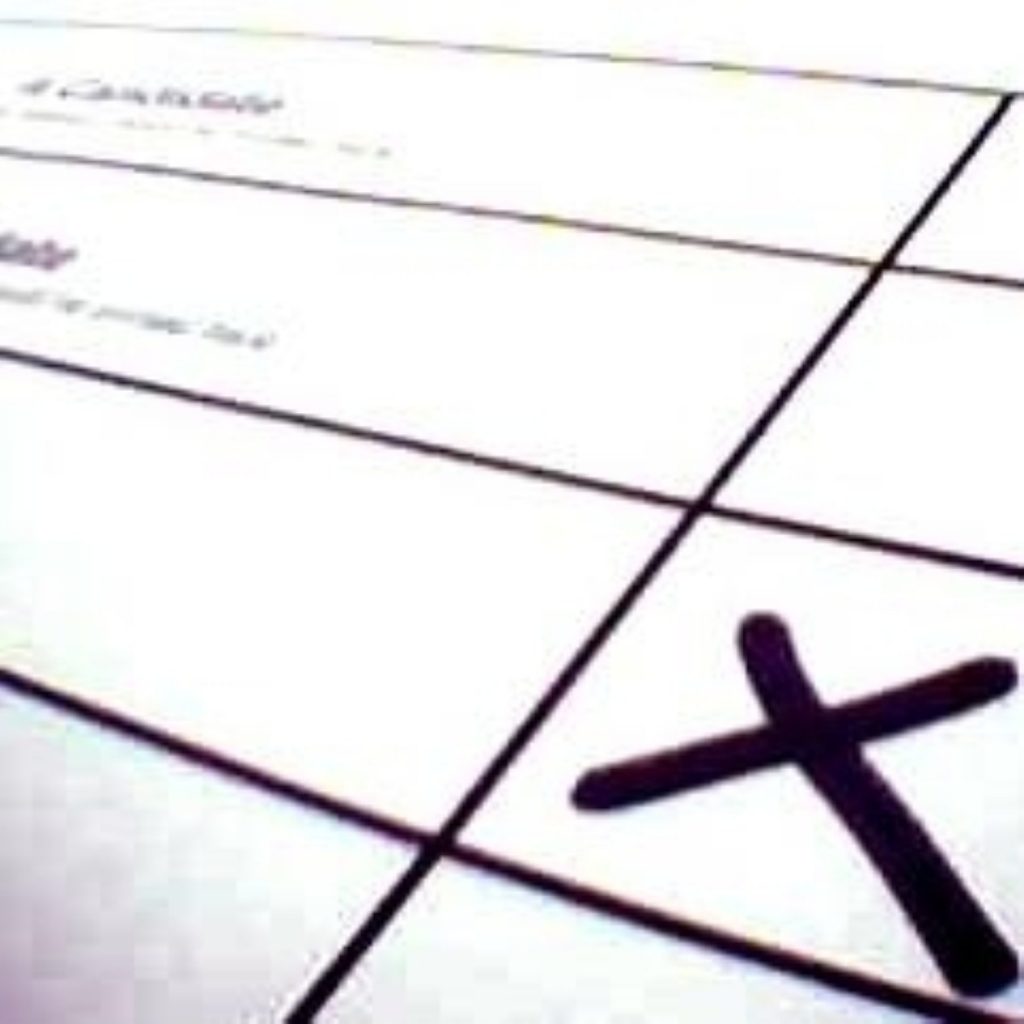Compulsory voting should be considered, says Electoral Reform Society
The Electoral Reform Society has called on the Government to “bite the bullet” and consider introducing compulsory voting in light of the decline in participation.
In a new publication, “Turning out or turning off”, the Society argues that radical reform is needed if the democratic process is to remain legitimate.
Chief executive Ken Ritchie, said: “Low turnouts in elections undermine the legitimacy of government – they can make our political institutions vulnerable to unrepresentative and sometimes extremist groups.
“But low turnouts are also a sign deeper problems in our democracy – problems that will not be solved by tinkering with voting methods alone,”


Specific proposals include making national election days public holidays with all electors entitled to time off work to vote, the voting age to be reduced to 16 and local authorities to be given clear responsibility for encouraging participation.
On the conduct of elections, the Society calls on the Government to postpone any further usage of postal or e-voting until it is proved that it is safe, secure and there are stronger anti-fraud measures.
The book also calls for debate on contentious issues such as compulsory voting or using incentives to encourage voting, and on regulating the way in which the media covers politics.
The Society stresses that it is “not advocating the adoption of compulsory voting at this time and nor is it saying that media regulation must happen. But we believe that these debates must be opened up in order to start the process of re-engaging the general public with politics.”
“We believe that there needs to be consideration of the role that the media plays in politics and whether this can either influence electors unfairly or turn them off politics altogether. Where does fair comment become spin or outright abuse?”
Politicians of all parties are known to be concerned about the declining electoral turnout. According to official figures, around 71 per cent of people voted in the 1997 general election, compared to 76 per cent in 1979. The 2001 election saw a further drop in participation, with only a 59 per cent turnout of those registered to vote.
A number of other countries already require all of its electorate to turn up to the polling station. The most famous example is Australia, which has had compulsion since 1925 and boasts a turn-out rate of around 96 per cent. However, compulsory voting does have its detractors who argue that it is an affront to civil liberties to force people to vote and leads to a higher number of “random” votes, whereby electors vote for a candidate at random rather than after proper consideration.











